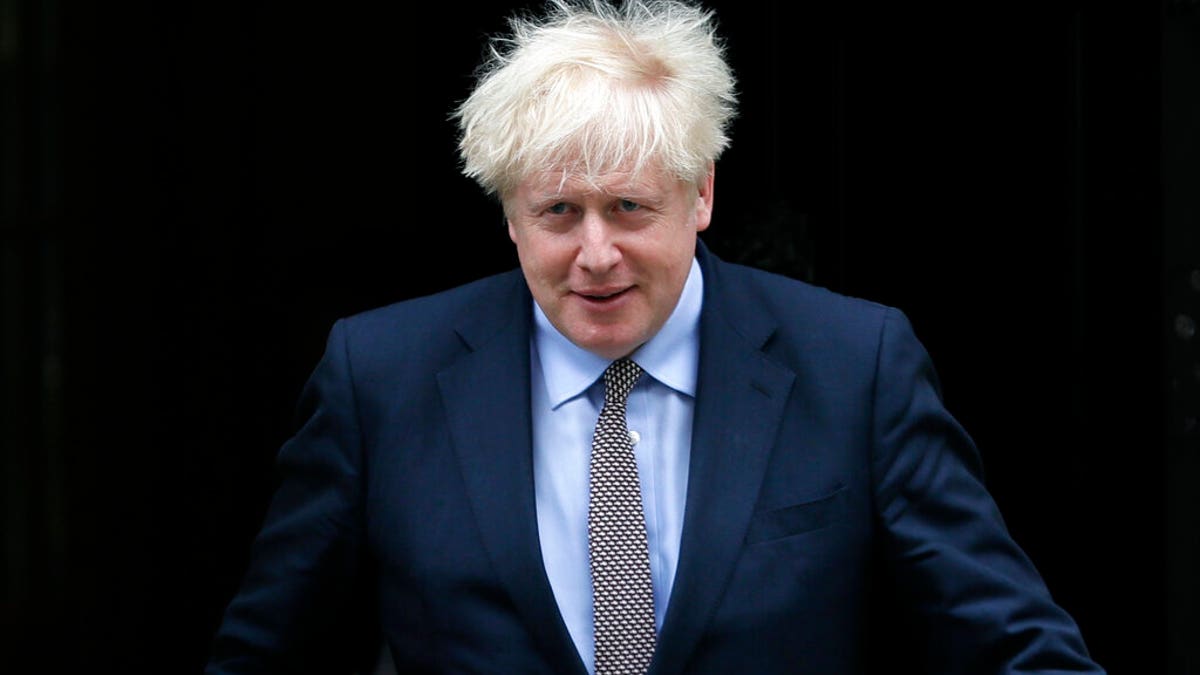More than four years since Brits voted to leave the European Union, the United Kingdom is once again engulfed in another Brexit crisis -- with a dramatic move by Prime Minister Boris Johnson to potentially rewrite parts of the initial divorce deal, sparking outrage and threats of legal action from E.U. leaders.
The U.K. formally left the bloc in January, having thrashed out a Withdrawal Agreement with the E.U. in 2019. That technical departure marked the beginning of a transition period as the two sides worked out a free trade agreement for once that transition expired at the end of 2020.
PELOSI WARNS 'NO CHANCE' OF US-UK TRADE DEAL IF BREXIT UNDERMINES GOOD FRIDAY ACCORD
But as those negotiations have stalled, Johnson’s government has become increasingly frustrated by what it sees as an intransigence from the E.U. and last week took the dramatic step of introducing the Internal Market Bill -- which would allow ministers to rewrite parts of the Withdrawal Agreement that apply to Northern Ireland.
The agreement included a Northern Ireland protocol that sought to prevent a hard land border between Northern Ireland (part of the U.K.) and Ireland (an E.U. member.) The agreement meant that there would be some E.U. regulations and checks for goods going to and from the rest of the U.K. from Northern Ireland. The new Internal Market Bill would allow the U.K. government to overwrite those rules if there was no free trade deal.
Johnson, in an op-ed for The Daily Telegraph on Saturday, said that the bill was in response to an E.U. threat to “impose a full-scale trade border down the Irish sea” unless the U.K. agreed to its terms on a free-trade deal.
“We are being told that the E.U. will not only impose tariffs on goods moving from Great Britain to Northern Ireland, but that they might actually stop the transport of food products from GB to NI,” he said, adding that it was “vital” that that option be shut down.
The move has led to intense criticism within Britain, even from Johnson’s own party, who accuse the government of threatening to renege on an international treaty.
Sajid Javid, a former Conservative Chancellor of the Exchequer, said he would not vote for the bill as “I cannot support the U.K. pre-emptively reneging” on the E.U. agreement. Former prime ministers Tony Blair and John Major have also spoken out against the move.
EU DEMANDS UK REWRITE NEW BREXIT BILL, THREATENS LEGAL ACTION AS TENSIONS ESCALATE
As the bill was introduced for its second reading in the House of Commons on Monday, Johnson tried to assure lawmakers that the powers in the bill were a last resort measure only.
“I have absolutely no desire to use these measures,” Johnson said. “They are an insurance policy.”
Ed Milliband, shadow business secretary for the opposition Labour Party, accused Johnson of “trashing the reputation of this country and trashing the reputation of his office.”
Because of the strong Conservative Party presence in the House of Commons, the bill passed on its second reading -- but 27 members broke with the party whips and abstained. The Times of London reported that other Tory MPs have warned that they will vote against the government and try to amend the legislation when it comes before a Commons committee next week.

FILE - In this Wednesday, Sept. 9, 2020 file photo, Britain's Prime Minister Boris Johnson leaves Downing Street to attend the weekly session of Prime Ministers Questions in Parliament in London. (AP Photo/Kirsty Wigglesworth, file)
The move has led to anger in both Brussels and Washington, where House Speaker Nancy Pelosi expressed concern that the move by Johnson could threaten the 1998 Good Friday peace accord. She said that, if that were the case, there would be “no chance” of a U.S.-U.K. trade deal.
Johnson has pushed back on this claim, saying that it is the E.U.’s interpretation that would undermine the Union and endanger peace in Northern Ireland, not the British response.
Should it become law, the E.U. has threatened possible legal action against the U.K. After crisis talks last week, the European Commission said that Vice President Maros Sefcovic had “reminded the UK government that the Withdrawal Agreement contains a number of mechanisms and legal remedies to address violations of the legal obligations contained in the text – which the European Union will not be shy in using.”
CLICK HERE TO GET THE FOX NEWS APP
Talks are due to continue this week in Brussels despite the controversy. Both sides have said that a deal must be agreed to next month, with Johnson threatening to pull out of talks if a deal is not made by the middle of October.
Without a deal, tariffs and other restrictions will almost certainly be imposed by both sides at the beginning of next year.
The Associated Press contributed to this report.









































